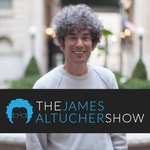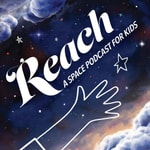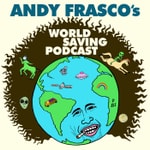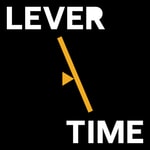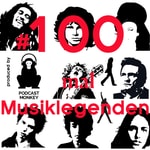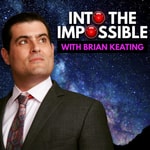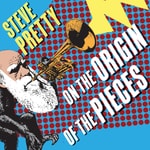Steve Pretty On The Origin of the Pieces – Détails, épisodes et analyse
Détails du podcast
Informations techniques et générales issues du flux RSS du podcast.

Steve Pretty On The Origin of the Pieces
Steve Pretty
Fréquence : 1 épisode/21j. Total Éps: 32

‘Wide-ranging and insightful’ - Guardian (pick of the week, January 2024)
A show for anyone who has ever listened to, played, improvised, written, or just enjoyed music and wanted to know more about these mysterious sounds. Are they 'auditory cheesecake' as cognitive scientist Steven Pinker claims, or actually a fundamental part of what has made us into modern humans?
With an enormous variety of guests ranging from well-known musicians, producers and industry figures through to those for whom music is central but who rarely have a voice, this show is unapologetically broad in scope.
In 'entertaining noises', Steve has musicians explain and demonstrate their instrument, giving fresh perspective on everything from the piano to modular synthesizers, via lesser-known folk instruments from around the world.
And in the flagship 'genre tombola' section, Steve is assigned a randomly-chosen genre from the list of 1334 music genres on Wikipedia, which he then goes away and researches, often talking to an expert in that music, before frequently attempting to make some music in that style... Whether he succeeds or not, there's lots of fascinating stuff to learn along the way!
As fun as it is thoughtful, this show aims to help you hear and appreciate music in new ways.
http://www.originofthepieces.com/
Hosted on Acast. See acast.com/privacy for more information.
Classements récents
Dernières positions dans les classements Apple Podcasts et Spotify.
Apple Podcasts
Aucun classement récent disponible
Spotify
Aucun classement récent disponible
Liens partagés entre épisodes et podcasts
Liens présents dans les descriptions d'épisodes et autres podcasts les utilisant également.
See allQualité et score du flux RSS
Évaluation technique de la qualité et de la structure du flux RSS.
See allScore global : 79%
Historique des publications
Répartition mensuelle des publications d'épisodes au fil des années.
Music therapy, Swedish standards and clinical improvisation
Épisode 28
mercredi 23 juillet 2025 • Durée 45:42
This week I speak to Kassandra e’Silva, a saxophonist, improviser and NHS music therapist. We caught up just before a gig at the Edinburgh Jazz Festival to talk about the power of music in care settings — from dementia wards and mental health clinics to the BBQ playlist at home.
We cover:
- Baby‑wearing during soundcheck 👶
- Pre‑verbal communication in music
- Clinical improvisation and jazz
- Whether all music is a kind of therapy
- And why rhythm might be the most important bit
—
00:00 – Intro – ALSO Festival, Nosferatu live score, and a conch bath update
03:00 – Edinburgh Jazz Festival – A tribute to The Jazz Bar and Bill Kyle
08:30 – Interview with Kassandra e’Silva – Backstage at the Spiegeltent
10:00 – What music therapy is – Presence, trauma, and non-verbal expression
13:30 – Lighting up the brain – Music as reconnection
16:00 – Music at both ends of life – Parenting and dementia
20:00 – Letting go of ‘good’ music – From jazz standards to egg shakers
23:10 – Rhythm as anchor – Repetition, stability, and mental health
25:40 – Creative expression – Instruments, blocks, and tambo-responsiveness
29:40 – Teaching vs therapy – When learning becomes part of healing
31:40 – Improvisation as diagnostic mirror – Sound as resistance
34:40 – Participation matters – Why passive listening isn’t enough
36:10 – What’s the point of music? – A beautiful closing answer
—
🎶 Check out Resounding, co-written with Nicole Cassandra Smit, on Hackney Colliery Band – Collaborations: Volume Two
—
Kassandra helped develop this practical guide for carers, families and practitioners.
Includes activity ideas, playlists, and real examples from NHS care.
Note: Kassandra’s views are her own, not those of NHS Lothian.
—
🎧 Support the show:
☕ patreon.com/StevePrettyOnTheOriginofthePieces
#musictherapy #jazz #musicanddementia #improvisation #originofthepieces #kassandraesilva #stevepretty
Hosted on Acast. See acast.com/privacy for more information.
Access, ancestry and a flute made from a leg
Épisode 27
jeudi 3 juillet 2025 • Durée 43:58
This week, Steve shares a powerful, surprising, and often jaw-dropping conversation with musician, composer and activist Jono Enser.
Jono is a gifted multi-instrumentalist and a member of Nubiyan Twist, but he’s also a disabled artist whose recent experiences as an amputee have sparked a radical rethinking of performance, access, and the body as instrument — quite literally. Together, they explore:
- The challenges and realities of touring as a disabled musician
- How venue design (or lack of it) creates systemic barriers to inclusion
- The radical creativity of reclaiming trauma — including Jono’s current project turning his amputated leg bone into a working flute
- Musical ancestors: from Neanderthal bone flutes to Tibetan thighbone trumpets
- Why accessibility isn’t just a bolt-on feature — it’s a cultural responsibility
- And what it means to give your pain a voice, breath, and song
Plus, Steve shares a clip from his Ocean Songs sunrise performance at Benacre Broad — part of his work with the Blue Machine project, inspired by Dr. Helen Czerski’s oceanography book of the same name.
There’s a lot packed in here, and it’s one of the most wide-ranging and deeply personal episodes yet.
🎟 Jono’s band Nubiyan Twist are touring this summer – check them out.
🎶 His solo project Matters Unknown is also worth diving into.
🎤 Steve is performing live at ALSO Festival and on July 11th at the National Maritime Museum with Blue Machine – see originofthepieces.com for details.
—
🧡 Support the podcast and get exclusive content at:
patreon.com/StevePrettyOnTheOriginofthePieces
🎧 Listen, watch, share and review: it all helps the podcast grow.
📍 More info at originofthepieces.com
00:00 – Welcome back + Acid Brass recap
Steve introduces the episode and reflects on his recent chat with Jeremy Deller.
02:00 – Meet Jono Enser
Jono’s musical upbringing, his shift from trumpet to tuba, and the spiritual resonance of breath.
07:00 – Life as a touring amputee
The hidden and not-so-hidden barriers for disabled musicians on the road.
10:00 – Access is everywhere (or isn’t)
From venue layouts to door weights and bar heights — access means more than ramps.
14:00 – What artists and venues can actually do
Practical steps, responsibility, and why checking access before the gig matters.
18:00 – Ocean Songs interlude
Steve shares a clip from his beachside dawn performance as part of the Blue Machine project.
23:00 – A flute made from his own amputated leg
Jono’s extraordinary project connecting trauma, ancestry, and sonic experimentation.
28:00 – Resonance, ritual, and reclaiming space
Caves, Ambisonics, somatic practice and ecological listening.
32:00 – Music as breath and transformation
Why giving pain a voice — literally — matters.
36:00 – What’s the point of music?
Jono’s heartfelt answer to Steve’s recurring question.
40:00 – Wrap-up and upcoming gigs
Tour dates, ALSO Festival, and National Maritime Museum performance previews.
Hosted on Acast. See acast.com/privacy for more information.
Afro-joik, arctic ukuleles and 'Big Boobies Is A State Of Mind'
Épisode 20
vendredi 6 septembre 2024 • Durée 01:03:27
Mailing list: sign up for special offers, news and more
Patreon: sign up for FREE for all manner of bonus goodies and to be part of a growing musically-curious community
Wilton's Music Hall show: use code STEVEPRETTYF for best available seats for £15
In this arctic special, Steve heads to northern Norway to meet a whole variety of fascinating musical characters.
First up, it's the turn of the Bitch Big Boobies Bang Band from Hemnesberget, who are exactly as you'd expect from a band with such an unexpected name...
Bitchy Big Boobies Bang Band Youtube
Bitchy Big Boobies Bang Band Facebook
Bitchy Big Boobies Bang Band Instagram
Then Steve chats to the equally unexpectedly-named Igor Kill, a touring musician with decades of experience, and one of the only makers of the rare 8 string ukulele outside of Honolulu.
Some of Igor Kill's beautiful handmade instruments
A bit of Igor Kill's discography
And then it's time to head up to the far north east of Norway and the brilliant Varangerfestival. After their set, Steve has a fascinating conversation with a group of indigenous Sami musicians, exploring the role of music in a society built around reindeer herding, how central the vocal style of 'joiking' is to Sami culture, and the unexpected and beautiful links between this arctic vocal style and drum music from east and west Africa.
AfroJoik (incomplete list, sorry!):
John André Eira, Viktor Wilhelmsen and Ola Brandsnes Vårtun
Afro-Joik's Varangerfestival listing
As always, please spread the word, rate and review the show. All manner of diverse and interesting musically-curious stuff coming up, so let's get some new ears on board!
Hosted on Acast. See acast.com/privacy for more information.
Narco music, Ola Onabulé and turf wars
Épisode 19
mercredi 24 juillet 2024 • Durée 01:12:02
Introduction (0:00:07 - 0:14:55):
Steve kicks off the episode with updates on his live shows, including upcoming recordings at the Into the Wild Festival and a special event at Wilton's Music Hall on 30th November. He encourages listeners to join his Patreon for discounted tickets and exclusive offers.
Steve then recaps highlights from episode 18 before diving into an engaging interview with Ola Onabulé.
Exploring Genre Flexibility (0:14:55 - 0:18:40):
Steve reflects on the journey of embracing multiple genres in music. He emphasises the importance of maintaining authenticity and the unique human touch that differentiates their music from AI-generated content. The discussion includes the creative process behind their track "Hacked Soul," highlighting its unpredictable evolution and polyrhythmic elements - and you can listen to the entire song at the end of the episode.
Musical Influence of Nigerian Heritage (0:18:40 - 0:23:44):
Steve and Ola discuss the deep sense of rhythm ingrained from growing up in Nigeria and how these African rhythms translate into genres like hip hop, rock, and blues.
Journey of a Soul Singer (0:23:44 - 0:39:11):
Ola shares his musical journey, starting with the impact of Stevie Wonder's album "Songs in the Key of Life" on his upbringing. He recounts a chance encounter that led him from law school to becoming a renowned singer. Ola then demonstrates his impressive baritone-to-tenor range.
Mexican Corrido (0:39:11 - 0:49:21):
Steve explores the genre of corrido, a traditional Mexican music style. He discusses the evolution of corridos from historical narratives to modern themes tied to narco culture. Insights from an interview with Mexican trumpeter Alex Gonzalez reveal the genre's progression and the blending of traditional and modern elements in corridos tumbados.
The Political Impact of Corridos (0:49:21 - 0:57:35):
They delve into the political undertones of corridos and their influence on Mexican culture. Steve discusses different types of corridos, their coded messages, and his experience attempting to create music in the corrido style. The segment concludes with a reflection on the broader purpose of music in conveying positive messages to future generations.
Genre Exploration (0:57:35 - 1:07:04):
Steve continues to explore corrido music, sharing his journey into understanding the genre and its connections to outlaw narco culture. Inspired by, and featuring Alex, Steve creates his own piece of corrido music. The episode finishes by choosing the next genre for the genre tombola.
Hosted on Acast. See acast.com/privacy for more information.
Serpents, shanties and shells
Épisode 18
mardi 2 juillet 2024 • Durée 01:07:30
In this episode of "Steve Pretty on the Origin of the Pieces," host Steve Pretty chats with Jeff Miller, a specialist in early brass instruments. They explore the origins and evolution of low brass instruments, particularly the serpent, and its historical significance. The discussion covers the cultural and physical aspects of music, the unique characteristics of various instruments, and the universal nature of musical languages. Steve also recaps his recent experiences at the First Light Festival in Lowestoft. The episode rounds off with an interview with and performance from the Lowestoft Longshoremen, a sea shanty choir, highlighting the cultural importance of their music.
Recap of Last Episode (00:00:07)
Steve summarizes the previous episode, including a session with a BBC engineer, discussion on Debussy and Arabesque music, and experiences at the First Light Festival in Lowestoft.
First Light Festival in Lowestoft (00:02:22)
Steve shares his experiences at the First Light Festival, including performances, interactions, and the festival's significance.
Performances at First Light Festival (00:03:34)
Steve details his performances at the festival, including a parade, concerts, and a dawn set on the beach.
Emotional Experience at Dawn Set (00:05:35)
Steve recounts the emotional impact of playing shells at dawn.
Introduction to Jeff Miller (00:08:41)
Steve introduces Jeff Miller, a multi-instrumentalist and low brass specialist, and their musical collaborations.
Evolution of Low Brass Instruments (00:09:55)
Jeff discusses the origins and evolution of low brass instruments and cultural influences on music.
Cultural Perspectives on Music (00:14:49)
Jeff and Steve explore cultural differences in musical harmony and its impact on music experience.
Classification of Musical Instruments (00:19:21)
Jeff explains the classification of musical instruments and his experience with various brass and woodwind instruments.
The origin of brass instruments (00:20:34)
Discussion on the historical evolution of brass instruments from animal horns to the cornet.
Design and structure of the serpent (00:23:31)
Description of the serpent, its components, and design.
Challenges of playing the serpent (00:27:07)
Explanation of the difficulties in playing the serpent.
Range and performance of the serpent (00:33:19)
Demonstration of the serpent's range and its use in orchestral performances.
Musical examples and timbre of the serpent (00:36:16)
Performance of a cello piece on the serpent and discussion of its unique timbre.
Challenges of playing the serpent (00:38:44)
Exploration of the difficulties in playing the serpent.
Serpent musical performance (00:39:39)
Musical performance on the serpent.
Challenges of playing traditional brass instruments (00:40:49)
Frustrations faced by modern brass players with traditional instruments.
Exploring the nature of sound through synths (00:42:28)
Jeff's journey into sound manipulation through electronic instruments.
Passing down heritage through sea shanties (00:58:06)
The importance of passing down heritage through sea shanties.
Singing Shanties (00:58:59)
Discussion on the tradition and history of singing shanties.
Diversity of Shanties (01:00:12)
Exploration of the diverse origins of shanties and their global influence.
Performance and Audience Interaction (01:01:51)
Reflection on shanty performances and audience engagement.
Hosted on Acast. See acast.com/privacy for more information.
Sound balancers, Bowie's favourite studio and Debussy
Épisode 17
lundi 10 juin 2024 • Durée 01:00:20
Episode Summary
In this episode, Steve Pretty embarks on a sonic journey with Martin Appleby, a seasoned sound engineer with over nearly four decades of experience at BBC's Maida Vale studios. They delve into Martin's illustrious career, exploring his role in capturing live music for prestigious BBC programs and his the challenges and opportunities of live recording. The episode further explores the philosophical dimensions of recording live ensembles and the unique challenges of live studio recording.
Key Topics Discussed
Introduction to Martin Appleby
- Overview of Martin's 40-year career at the BBC.
- Martin's background as a musician and sound engineer.
- His studies on the Appalachian dulcimer and its connections to West African music traditions.
- The rich history and significance of Maida Vale studios.
Live Studio Recording
- The art and pressure of recording live music in a studio setting.
- The benefits of musicians performing together in the same room without headphones.
- Highlighting a memorable session with singer Jamie Cullum.
- The role of sound engineers in capturing authentic, dynamic performances.
Technical Aspects of Recording
- Use of omni and stereo cardioid microphones.
- Shaping the sound with artistic precision, akin to photography.
- The importance of perspective in music recording.
Exploration of Arabesque Music and Debussy
- The influence of Islamic art on Debussy's compositions.
- Debussy's revolutionary approach to music, seeking to establish a distinct French identity.
- Insights from pianist Benjamin Steinhardt on Debussy's inspirations.
Debussy's Musical Legacy
- Debussy's use of older modes and Eastern pentatonic scales.
- The impact of his relationship with his patron Nadja and admiration for Chopin.
- Steve's own attempts at composing in Debussy's style and its analysis.
Evolving Music Industry
- Discussion on AI-generated music and its potential limitations.
- Updates on the music industry landscape, including genre explorations and the transformation of the Jazz Bar in Edinburgh into a community-owned arts hub.
- The closure of the Towersley Festival and the challenges faced by live music events today.
Notable Quotes
- "Capturing the performance is the one thing you really can't fake." - Martin Appleby
- "The great thing we can do that nobody else can is we've got the space. The musicians can all come in, be in one place, do their thing, go away, and we just mix it." - Martin Appleby
Additional Information
- **Patreon:** Listeners can support the show and access exclusive content on Steve Pretty's Patreon page.
- **Previous Episode:** Exploration of the double bass with Charlie Pine.
Next Episode Teasers
- Upcoming explorations of genres like Tona and Corrido.
- Further discussions on the evolving landscape of the music industry.
Listeners are encouraged to tune in for a deep dive into the world of sound engineering, the legacy of Debussy, and the vibrant history of Maida Vale studios.
Hosted on Acast. See acast.com/privacy for more information.
Double bass, planetary resonance and jam
Épisode 16
mercredi 22 mai 2024 • Durée 01:01:10
Steve invites jazz double bassist/singer Charlie Pyne to the studio for a fascinating chat about all things bass. As well as a tour of her beautiful, historic instrument (affectionately named Claude), Charlie talks about the role of the bass in jazz and swing, and we hear some incredibly soulful playing. Charlie is so warm and joyful, and this really
comes across in her music, which she gives us a live snippet of here, before an impromptu jam
with Steve and trombonist/occasional podcast assistant Joel Knee.
Before this deep dive (sorry…), we hear an excerpt of the live podcast recording at Wilton’s Music Hall from earlier in the year. Astronomer Chris Lintott introduces us to a planetary system many light years away, and Steve explains how this distant star system can teach us about music, and vice versa, with the help of Filament Choir, Valeria Clarke and Hackney Colliery Band’s rhythm section.
Oh, and stay right to the end for a very special offer…
Sign up for the Patreon, mailing list and everything else here: http://www.originofthepieces.com
Charlie Pyne: https://charliepyne.co.uk/
First Light Festival: https://firstlightlowestoft.com/
Chris Lintott: https://www.physics.ox.ac.uk/our-people/lintott and his brilliant podcast that I forgot to mention in the show (sorry Chris!): https://podcasters.spotify.com/pod/show/dog-stars
Valeria Clarke: https://www.valeriaclarke.com/
Hackney Colliery Band: http://www.hackneycollieryband.co.uk
Also Festival: https://www.also-festival.com/
Hosted on Acast. See acast.com/privacy for more information.
Spirited Away, modular expression and mild despair
Épisode 15
mercredi 8 mai 2024 • Durée 01:36:02
In a specially-extended episode, Steve has a detailed conversation with some of the creative team behind the smash hit stage version of the Oscar-winning Studio Ghibli film Spirited Away. Director John Caird, co-adaptor Maoko Imai and Musical Supervisor/Orchestrator Brad Haak tell Steve how the show came to be, and give some absolutely fascinating insights into composer Joe Hisaichi's work, including Brad demonstrating some beautiful examples on John and Maoko's gorgeous grand piano.
But first, Steve chats with Jay Chakravorty, composer, producer and promoter of brilliant London crossover classical music night Counter Chamber. Jay demonstrates his incredible modular synthesiser setup, and he and Steve discuss how expressive and emotional these wobbly, warbly voltage controllers can be, before Jay jams on his amazing machines.
And before that, Steve shares his mild despair at the state of the music industry at the moment, prompted both by off-mic chats with his guests and musician colleagues, and also by a recent article in the Guardian about the plight of musicians in 2024.
Sign up for the Patreon, mailing list and everything else here: http://www.originofthepieces.com
Guardian article: https://www.theguardian.com/music/2024/apr/25/shocking-truth-money-bands-make-on-tour-taylor-swift
Jay Chakravorty: https://jaychakravorty.com/
Spirited Away: https://www.spiritedawayuk.com/
Hosted on Acast. See acast.com/privacy for more information.
Eliza, a cello made of U boats and Igbo flow
Épisode 14
mardi 23 avril 2024 • Durée 52:38
In another varied episode, Steve talks to soul singer Eliza about revealing her pregnancy live on stage, cellist Verity Simmons demonstrates her beautiful cello (and explains how it's partly made from a German U boat), and then Steve breaks down the fascinating genre of Igbo Rap in the Genre Tombola, including an in-depth transcription of some of the brilliantly complex rhythms.
Sign up for the Patreon, mailing list and everything else here: http://www.originofthepieces.com
Eliza's website: https://www.elizalovechild.com/
Eliza's instagram, including the pregnancy reveal: https://www.instagram.com/elizalovechild/
Verity Simmons: https://maslink.co.uk/client-directory?client=SIMMV1&
Three in a Bar podcast: https://www.threeinabar.com/
Razz Mataz (Episode 8) by Chucky P, Khenyzee, Space, Chumzy (Igbo Rap track): https://www.youtube.com/watch?v=LXWhvYDftMo
Additional Igbo Rap tracks to check out:
https://youtu.be/LXWhvYDftMo?si=7LpEr-v4TKa5oZjR
https://youtu.be/AckJs1noxMw?si=E9o41r7dSpxEjfO8
https://youtube.com/playlist?list=PLup2K0PBFlK1tY45LtqRKnfvOfY6scdqp&si=g705zAhYFbrZX4fw
Hosted on Acast. See acast.com/privacy for more information.
Worldwide Washboard Registry, autistic art, rockets and zydeco
Épisode 13
samedi 6 avril 2024 • Durée 01:15:03
To celebrate Autism Acceptance Week, Steve has two brilliant autistic artists on the show - poet Maddi Crease and musician Robyn Rocket. They talk autistic art, inclusive gigs, autistic joy, space trumpet and much more.
And in between Steve takes us back to New Orleans for an interview with one of the world's leading exponents of the musical washboard! Alex Macdonald has made his living from playing the washboard for over 20 years, and here takes Steve on a quick tour through zydeco and cajun music, as well as demonstrating some techniques on this unique percussion instrument. He even agrees to let Steve have a go...
Full, unedited interviews with Alex, Maddi and Robyn are available, along with much more (including the full, professionally-recorded live show from Wilton's Music Hall) on the show Patreon. Sign up for exclusive bonus content, special offers, chat and much more: https://www.patreon.com/StevePrettyOnTheOriginofthePieces
Steve's website: http://www.stevepretty.com
Hosted on Acast. See acast.com/privacy for more information.

